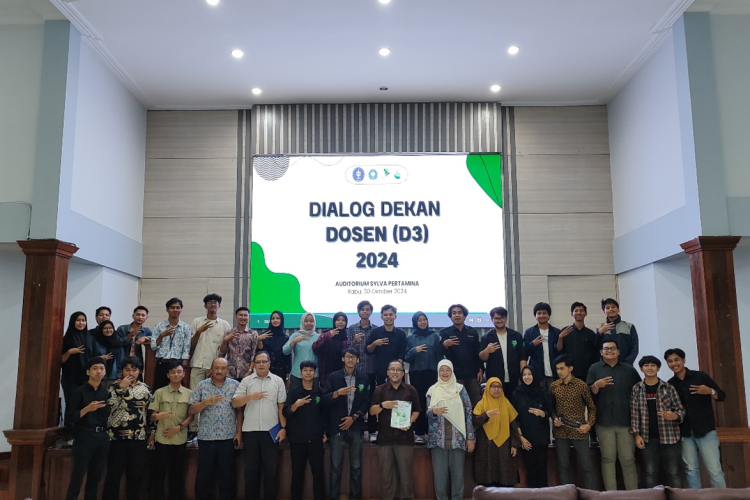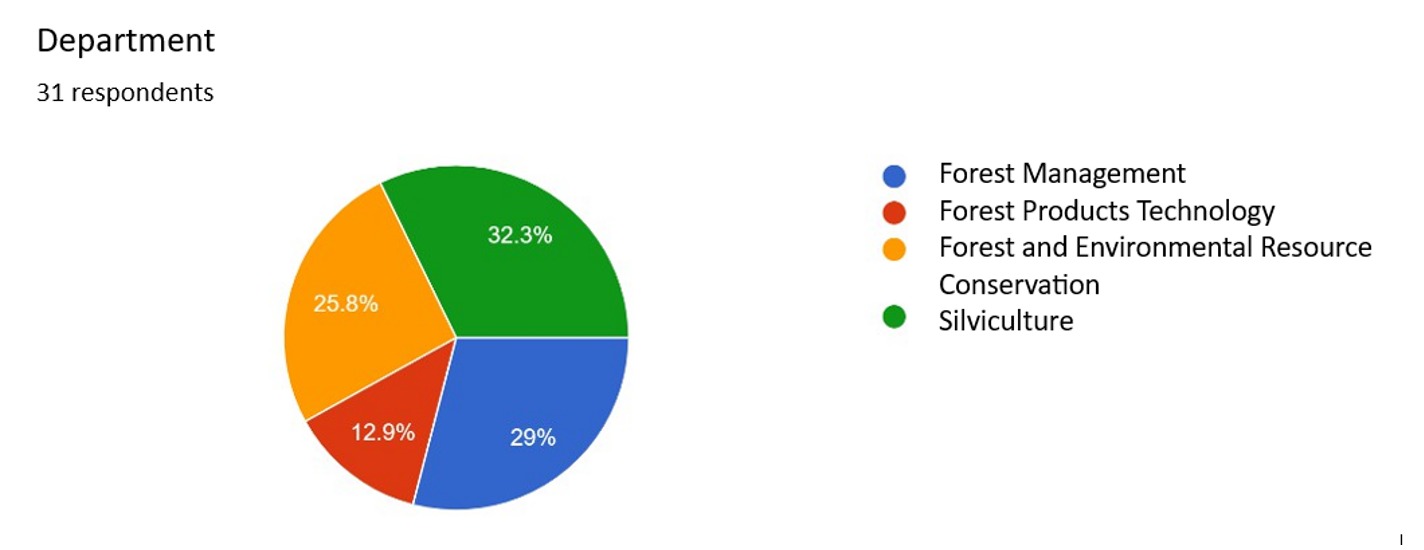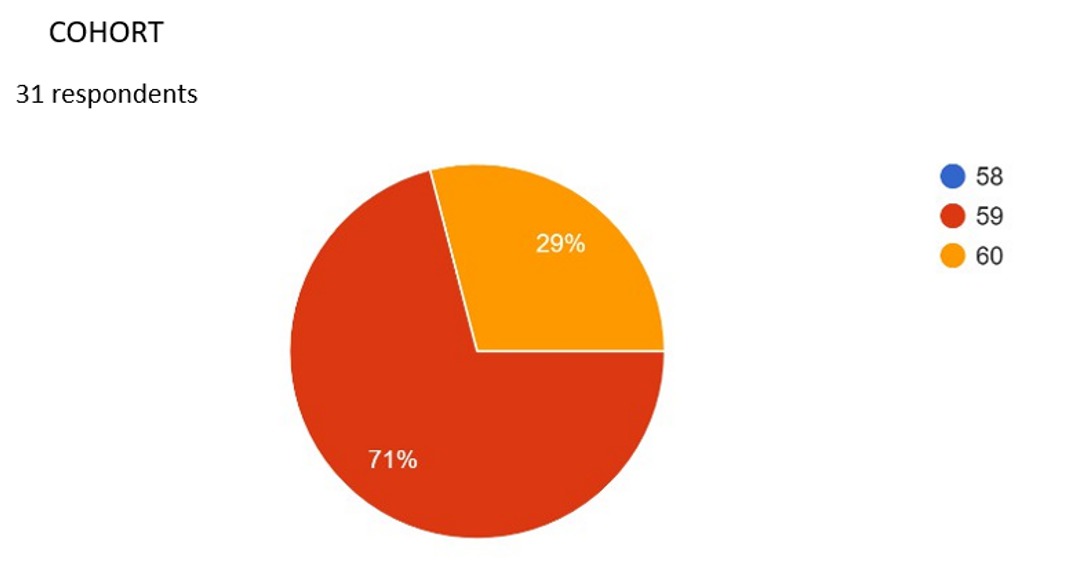DEAN’S DIALOGUE 2024
INTRODUCTION
Based on the Republic of Indonesia Law Number 12 of 2012 on Higher Education, faculties hold several key responsibilities in meeting academic needs and providing teaching and learning facilities in higher education institutions. First, faculties are responsible for ensuring that the educational programs offered are relevant to academic requirements and advancements in knowledge. This involves developing appropriate curricula and providing adequate resources, such as books, laboratories, and information technology, to support the learning process. Second, faculties must provide sufficient learning facilities. These include comfortable classrooms, access to libraries, and other supporting amenities such as laboratories and discussion rooms. These facilities should be accessible to all students to support an effective learning process. Additionally, faculties need to ensure that the learning environment fosters positive and inclusive social interactions, enabling students to collaborate and exchange ideas effectively. Third, faculties are tasked with providing academic guidance to students. Academic advisors play a vital role in assisting students with planning their studies, selecting courses, and addressing academic challenges. This guidance aims to help students complete their studies on time and in an effective manner. By offering the necessary support, faculties can help students develop independence and responsibility in their learning process. In conclusion, the responsibilities of faculties in fulfilling academic needs and providing teaching and learning facilities are crucial for creating a high-quality educational environment and supporting students’ growth into competent individuals in their respective fields.
Fulfilling students’ needs involves several aspects, such as academics, welfare, and facilities, which serve as the primary support for students’ activities on campus. When these supports, which constitute the rights students are entitled to, are not adequately provided, various issues may arise beyond students’ obligations, particularly disruptions to academic activities, which are the core focus within the campus. Disruptions to students’ academic activities due to unmet rights can have severe long-term consequences. The disturbance in academic activities experienced by students may lead to graduates who are not competent in their respective fields. Such disruptions to students’ potential can significantly impact their post-campus life in a negative way.
The Faculty of Forestry and Environment at IPB University has achieved remarkable success, ranking 43rd in the world according to Edurank 2023, reflecting the excellence in education and research in the fields of forestry and environment. However, despite this achievement, the faculty still faces several serious challenges that need to be addressed. In its Strategic Plan, the Faculty of Forestry and Environment at IPB University has proposed to become a “Faculty of the Future,” consisting of quality and popular study programs capable of overcoming the challenges of globalization by preparing to meet the future needs of the nation. However, before overcoming these challenges, the current reality at the Faculty of Forestry and Environment at IPB reveals a lack of academic support that could affect the quality of student learning, such as limited access to adequate learning resources and modern research facilities. In addition, student welfare is also a concern, with complaints regarding financial support and mental health services that are still not optimal. The existing infrastructure, although supportive, still requires improvement to meet international standards so that students can learn and innovate more effectively. Addressing these issues is crucial for the Faculty of Forestry and Environment at IPB to maintain and enhance its global reputation.
DISCUSSION
The aspirations in the preparation of this study are crucial for the benefit of students, particularly in the areas of academics, welfare, and facilities. The aspiration survey conducted from Thursday, October 24, 2024, to Monday, October 28, 2024, gathered responses from 31 participants, with the following distribution: 29% respondents from the Department of Forest Management, 12.9% from the Department of Forest Product Technology, 25.8% from the Department of Forest Resource Conservation and Ecotourism, and 32.3% from the Department of Silviculture. The 31 survey respondents also consisted of 71% from the Class of 59 and 29% from the Class of 60. The distribution of respondents across departments is considered to be well-balanced, despite varying numbers, as is the distribution of respondents from different classes. Both active classes within the faculty have participated, albeit with different respondent percentages.
Figure 1: Percentage of respondents by department
Figure 2: Percentage of respondents by class year
One issue that received significant negative attention from respondents was the locked toilets, which relates to the campus curfew policy. Toilets that are locked after 4:00 PM, well before the curfew time of 10:00 PM, result in students being unable to freely use the toilets after 4:00 PM, even if they are still required to be on campus until 10:00 PM. The lack of accessible toilets during this time frame significantly impacts students, making it difficult for them to find nearby toilets between 4:01 PM and 10:00 PM. During this period, students often find themselves holding in their urine or bowel movements due to the difficulty in accessing toilets. According to Abbas et al. (2023), holding in the urge to urinate or defecate can lead to serious health problems. This habit is often driven by practical reasons, such as the lack of clean toilets or discomfort with using public restrooms.
However, if this habit continues over time, the consequences can be quite detrimental. Holding in bowel movements can lead to constipation, where the stool becomes hard and difficult to pass because the intestines reabsorb water from the accumulated feces. In addition, constipation can trigger hemorrhoids, as the pressure exerted when straining to pass hard stool can cause blood vessels in the anus area to swell. Another potential issue is anal fissures, which are tears in the tissue around the anus due to hard, difficult-to-pass stool, often accompanied by pain and bleeding during bowel movements.
Meanwhile, holding in urine is equally dangerous. This habit can increase the risk of urinary tract infections, as urine retained in the bladder can become a breeding ground for bacteria. If left untreated, these infections can lead to serious complications such as kidney inflammation. Overall, both holding in bowel movements and urination have significant health consequences. Therefore, it is highly recommended not to delay the urge to relieve oneself in order to maintain the health of the digestive and urinary systems. Adopting a healthy lifestyle with adequate fiber and fluid intake is also important to prevent these issues.
The distribution of water stations is uneven, and the number of stations is insufficient for the Faculty of Forestry and Environment, where daily activities often take place outdoors and require a large amount of fluid. The drinking water provided by the current water stations is unable to meet the demand for drinking water from all students in the Faculty of Forestry and Environment. A shortage of drinking water can have a significant impact on brain function, particularly in terms of concentration and focus. Water is a major component of the human body, with approximately 73% of the brain consisting of water. When the body becomes dehydrated due to insufficient fluid intake, brain performance is affected, leading to difficulty focusing and concentrating.
The Kantin Rimbawan, which received the majority of complaints in the aspiration survey, garnered significant attention from KM Fahutan due to its insufficient air circulation, resulting in stuffiness when activities are taking place inside. The Rimbawan canteen has a food preparation area (kitchen) that is integrated with the dining space, but air circulation for the smoke from cooking was not considered in its design. Students inside the canteen, especially during the daytime, find it very uncomfortable, as the dining area, which should provide comfort, fails to do so due to the minimal ventilation.
Internship experience is a very important and valuable aspect for students, as it not only provides them with the opportunity to gain practical experience in the workforce, but also offers practical insights that are difficult to obtain through classroom learning alone. Through internship programs, students can apply the theories they have learned during their studies to real-life situations in a professional environment. As a result, they not only learn theoretically but also acquire essential skills needed in the workplace. However, despite the importance of internship experience, students often face challenges in finding relevant information about internship opportunities. Many of them struggle to find out where they can intern, which companies are offering opportunities, and how to apply. This results in many students missing out on opportunities to develop skills that could be gained through hands-on experience. The limited information about internship programs leaves them stuck in uncertainty, which can negatively affect their readiness to enter the workforce after graduation.
On the other hand, adequate academic facilities are also crucial in supporting student learning activities. Complete and modern laboratory equipment is one of the keys to conducting practical sessions effectively. With the proper equipment, students can perform in-depth experiments and practices, allowing them to gain a strong understanding of the concepts being taught. However, many laboratories in the faculty are currently not equipped with sufficient tools. This presents a serious obstacle for students who wish to develop their practical skills. When students have to share equipment or are unable to perform the necessary experiments, their understanding of the material is hindered.
In addition to laboratory equipment issues, the condition of classroom facilities is also a significant concern. Equipment such as projectors, audio systems, and comfortable chairs greatly impact the effectiveness of the learning process. However, many students have complained that the classroom facilities are inadequate. Projectors that frequently malfunction, uncomfortable chairs, and poor audio systems can disrupt students’ concentration and interest in learning. In an environment that is less than ideal for studying, students may feel frustrated and lose motivation to study effectively.
This has made students realize that the job market is becoming increasingly competitive, and without adequate internship experience and a strong understanding, they will struggle to compete. This awareness encourages them to seek solutions, including proposing to the faculty to be more proactive in providing information about internship opportunities. Additionally, they hope the faculty can improve laboratory and classroom facilities to make the teaching and learning process more effective and enjoyable.
Overall, internship experience, adequate laboratory facilities, and good classroom conditions are essential elements in student education. These three aspects are interconnected and contribute significantly to the development of students’ skills and understanding. Therefore, the faculty needs to pay serious attention to addressing these issues. With the right support, students will be better prepared to face challenges in the workforce and have a more meaningful education. In this way, it is hoped that the quality of education at the Faculty of Forestry and Environment IPB will improve, and students will be able to achieve a brighter future filled with opportunities.
CONCLUSION AND RECOMMENDATIONS
Conclusion
The aspiration survey conducted at the Faculty of Forestry and Environment revealed various issues faced by students, particularly related to facilities, internship experience, and academic resources. Out of 31 respondents, the majority came from various departments and cohorts, providing a fairly representative overview. The identified issues include inadequate toilet facilities, a lack of water stations, poor air circulation in the canteen, and inadequate laboratory and classroom facilities. All of these impact students’ well-being and the quality of learning. The importance of internship experience was also emphasized, as many students face difficulties in finding information about internship opportunities that could enhance their skills.
Recommendations:
- Improvement of Facilities: The faculty should take immediate action to improve the condition of toilets, increase the number of water stations, and improve air circulation in the canteen so that students can engage in activities comfortably.
- Provision of Internship Information: A better system is needed to provide information about internship opportunities, such as an online portal or regular seminars to help students find available opportunities.
- Enhancement of Academic Facilities: Investing in adequate laboratory equipment and good classroom facilities should be a priority. This will improve the effectiveness of learning and help students understand the material better.
- Participatory Approach: Involving students in the process of improving facilities through forums or regular meetings can ensure their aspirations are accommodated and increase their sense of ownership over the existing facilities.
By implementing these recommendations, the Faculty of Forestry and Environment is expected to create a better learning environment and support the overall development of students.
REFERENCES
Undang-Undang Republik Indonesia Nomor 12 Tahun 2012. Tentang Pendidikan Tinggi. Indonesia
Abbas M, Mus R, Siahya PG, Tamalsir D, Astuty E, Yunita M, Tanihati GE. 2023. Upaya preventif infeksi saluran kemih (ISK) melalui skrining pemeriksaan urine pada remaja putri. Jurnal Kreativitas Pengabdian Kepada Masyarakat. 6(10): 4317-4327.
DOCUMENTATION




